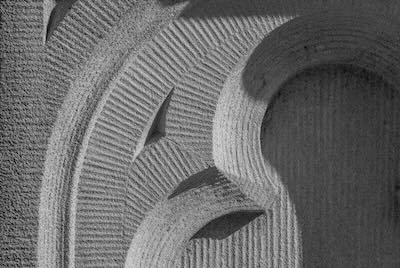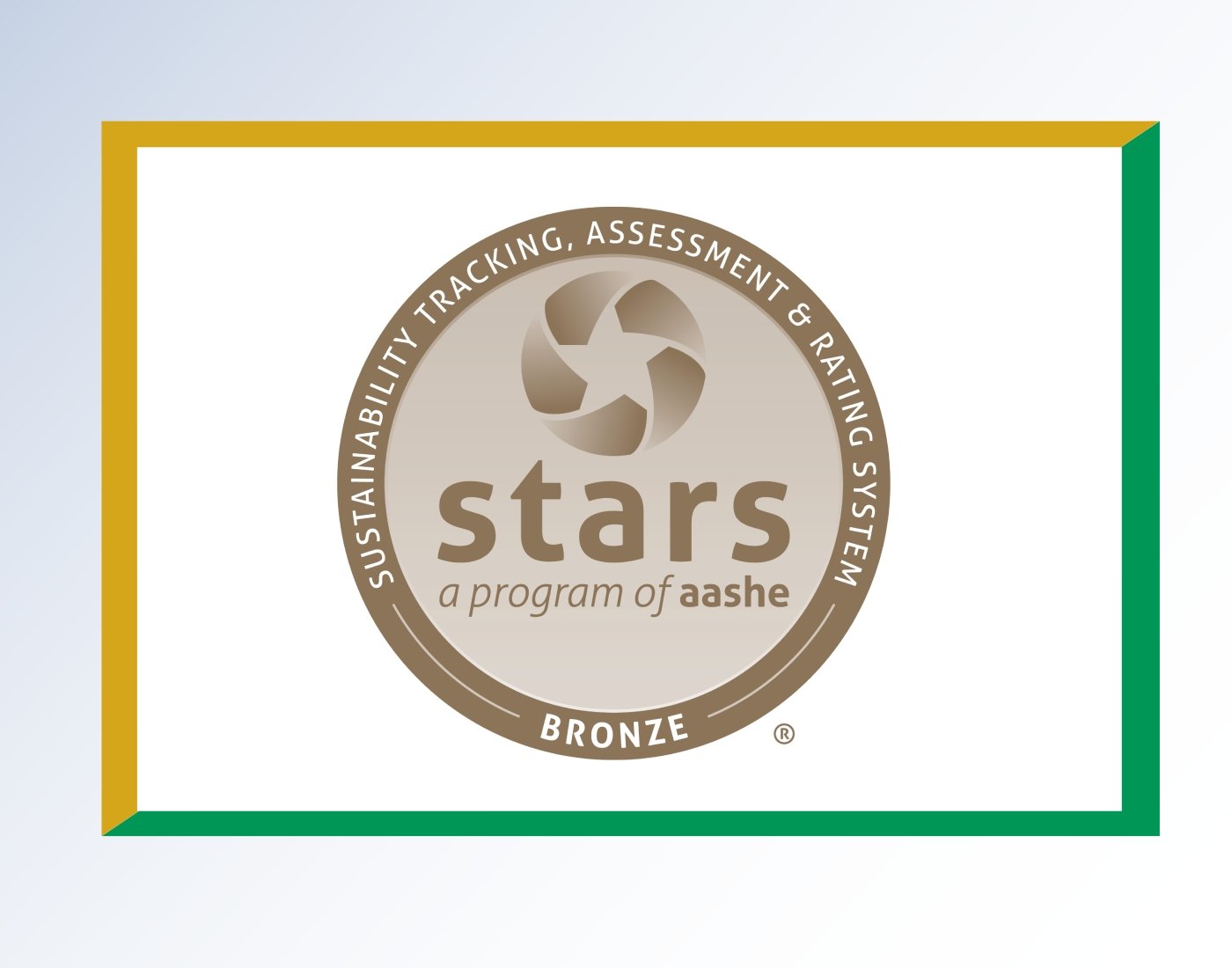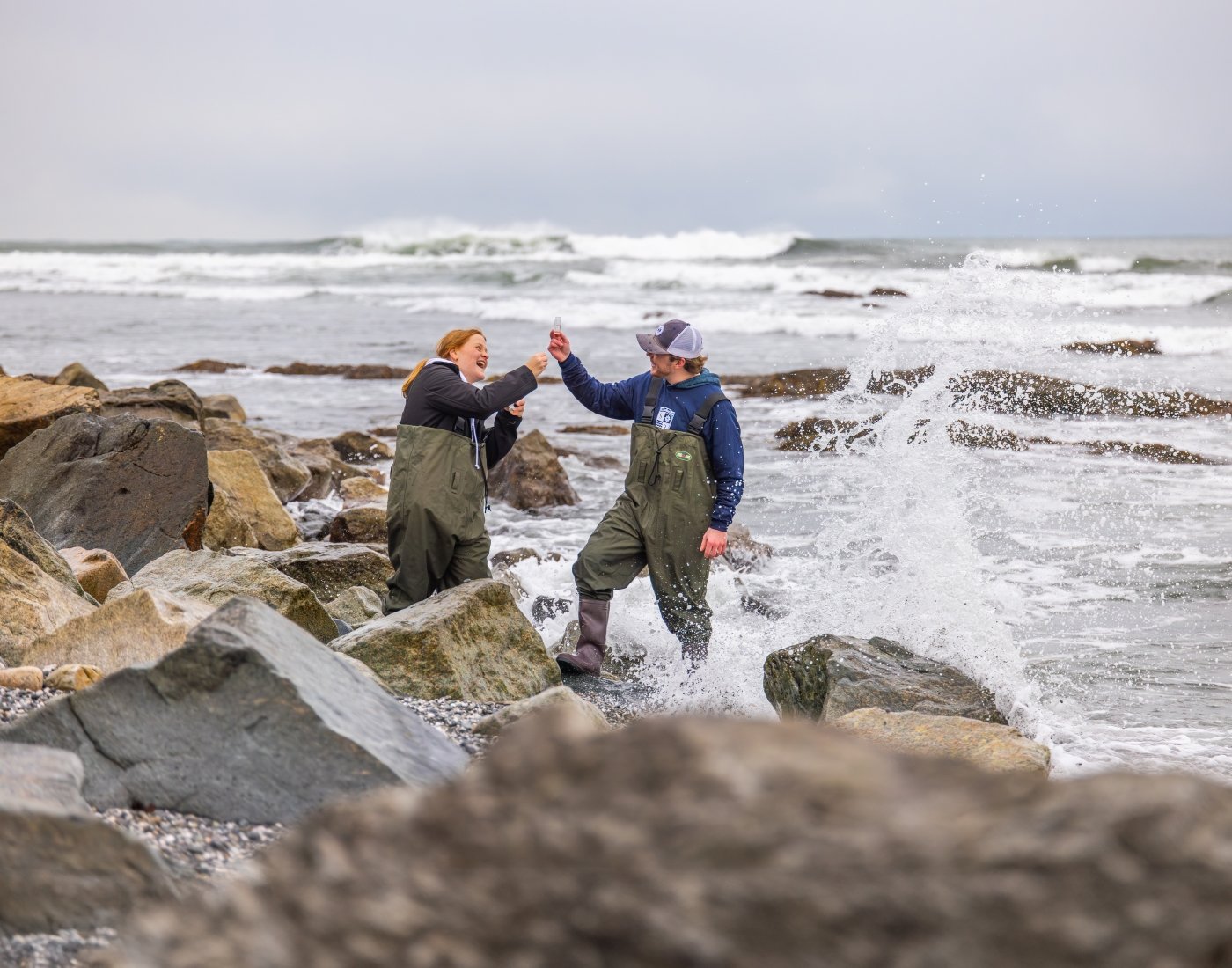
Sustainability
As a mercy, Catholic institution of higher education, Salve Regina University is committed to advancing environmental stewardship and sustainability on campus and in the community by integrating the social, economic and ecological values of sustainable development into institutional policies and practices.
Climate change and environmental degradation are pressing issues that compromise the future of our common home, threaten human dignity and all life, and compound the hardships of the poorest and most vulnerable members of our community. The advancement of an integral ecology at Salve celebrates our mission to serve as stewards of God’s creation, working as transformative agents to bring about a more harmonious, just and merciful world.
Our institutional commitment to sustainability is underwritten by the Critical Concerns of the Sisters of Mercy as we seek to meet the present needs of our campus community without compromising the ability of Salve and our local and global neighbors to meet future needs.
AASHE Bronze Rating
Salve received a bronze rating by the Sustainability Tracking, Assessment and Rating System (STARS) offered through the Association for the Advancement of Sustainability in Higher Education (AASHE). With over 350 colleges and universities participating across 15 countries, the STARS program is the most widely recognized benchmarking framework for sustainability performance indicators across higher education, providing a framework for understanding sustainability.

Our Goals
Goal 1: Environmental stewardship
Practice environmental stewardship by promoting responsible water consumption, waste reduction, sustainable and socially just food production, material reuse and recycling, renewable energy investments, ecological land use, green building practices, sustainable campus transportation options and campus conservation efficiencies.
Goal 2: Sustainability across the curriculum
Create an environmentally literate community by advancing interdisciplinary teaching and research to address pressing local and global environmental, economic and social challenges.
Goal 3: Integral ecology and environmental justice
Create an environmentally responsible community by fostering a visible, educated and active commitment to integral ecology and environmental justice among our students, faculty, staff and alumni.
Sustainable Curriculum
Our interdisciplinary major and minor in environmental studies expose students to the broad range of issues that arise from the interaction of humans with the natural world, and to the tools required to understand and solve environmental problems. Students take courses in math and science, policy, ethics and society, and preservation, complemented by research and a senior thesis.

Student Organizations
Inspired by Salve's mercy mission to be stewards of God's creation, our students work together to make a difference for future generations.
Environmental Club
The Environmental Club spreads awareness of environmental issues to help us all be better stewards of the earth. Through meetings and discussions, members strive to be better stewards of the earth. The club also takes part in activities such as nature walks, beach cleanups and activities for Earth Week.
Hydroponics Club
The Hydroponics Club is more than just a few scientists in a laboratory: it is a group interested in innovative ways to create sustainable growing methods, and it is open to all students in the Salve community. They study hydroponics as a sustainable method of growing, they use hydroponically grown plants for research, and they grow edible plants to sell at farmer’s markets. They also conduct outreach programs and provide tours for interested students. The hydroponics lab began as a research center, but today it is much more than that.
Protect Our Wildlife
An organization with the best interests of animals at heart, Protect Our Wildlife strives to raise awareness about the conditions of habitats, natural and man-made, and about the way people treat creatures around the world. They encourage individuals to form a united front against animal cruelty and injustice, promoting action above all else, even if it be simply telling a friend about a particular event. They hope that one day, the natural order of life will be restored and humans and animals will live together in a world full of understanding and respect, a world without exploitation and mistreatment.
Salve TreeHawks
With a mission to advance the arboretum’s accreditation to Level III, the Salve TreeHawks are a dedicated group of students who believe in the importance of environmental stewardship. Whether cataloging trees and shrubs or participating in community outreach initiatives and Earth Week activities, the TreeHawks are engaged in protecting and promoting our amazing campus resources.
